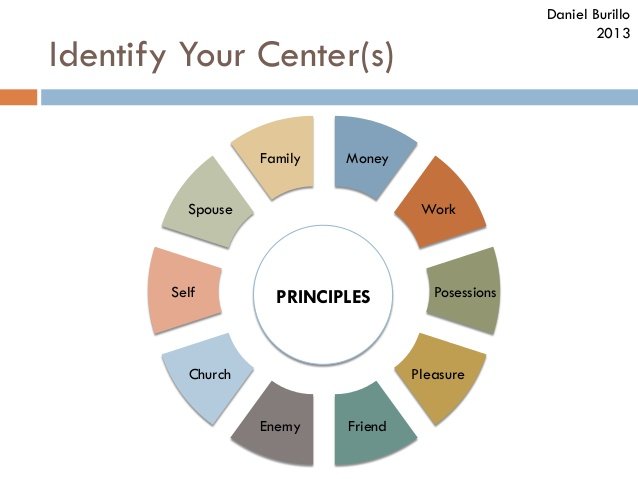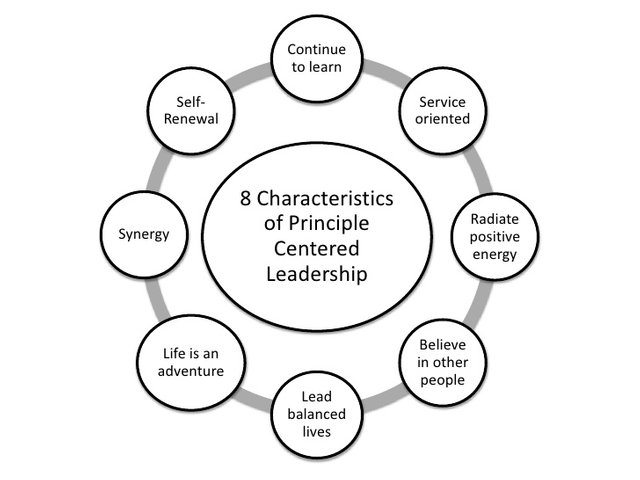7 Habits of Highly Effective People: #2 Begin With the End in Mind
For the past few weeks, I have been reading a book entitled "7 Habits of Highly Effective People". So far, it has been quite a read, full of insights and practical applications. For today, allow me to share some of the points regarding the 2nd Habit: "Begin with the end in mind" that has greatly influenced myself to re-align my plans and the things that I do to my long term goals.
The End
The author, Stephen Covey, started with a simple illustration. Try to imagine yourself being in a funeral. You are all suited up only to find out that you are attending your very own funeral. Now, this may sound a little weird but don't let the weirdness take away the lessons and values that you can get from this.

Source: PixaBay
During the eulogy, there are four speakers: part of your family, friends, colleagues and some community work. Now, what would you want each of these speakers to say about you and your life?
The word eulogy means "good words", so literally when we have it on funerals, all the good stuffs about the dead person will be shared and remembered. And it would be a very sad case to see and hear, when the people who are close to us when we are alive are all speechless. Not because they are ran out of words, or that they are too sad of your passing, but because your life did not make any impact at all. That would be very tragic.
At this point, we should reflect on the impact that we have made into the world. To be more specific, to our family, our children, to our workmates and to the community. While we are alive we have the power and means to make a lasting impression to the people around us.
We still have time, but our time is running out. So with our limited time, we should make the most out of it. This is where the 2nd Habit comes in. If we start to focus and start with the end in mind, we can achieve amazing things in our lives. It will motivate us to persevere and plan our way towards our goals.
Identify Your Center
Each of us have a center that drives us to to things. Even without us knowing it, we have a center that affects what we do, why we do, and how we do things. This center is a reflection of the things that we hold more value, which could be a good or a bad thing.

Spouse Centered - If you are spouse centered, your mood depends on how your spouse treats you. If he/she treats you well, you become happy and if he/she doesn’t treat you well, you become sad or angry. You let someone else to control you and you become reactive.
Family Centered - When your sense of worth comes from your family tradition, culture or the family reputation. For Example- The parents who force their children to act in a certain way because of the reputation of their family in the society.
Money Centered - Money is important for survival we all know that but when people put making money at the center of their lives, they become miserable. There is always a lack of security worrying them.
Work Centered - Work centered people become workaholics driving themselves to produce at the sacrifice of their health, relationships and other important areas of their lives. They become vulnerable to anything that prevents them from continuing on it.
Possession Centered - When your sense of worth comes from what you own. Your clothes, house, mobile phones, and jewelry decides how important you are. You always have fear of losing these things and as a result, you are not able to live happily and freely.
Pleasure Centered - Pleasurable things like TV and movies can instantly make you feel good but overdoing them doesn’t help you. A pleasure-centered person too soon becomes bored with everything and looks for more and bigger pleasure. Often, this can take the form of an addiction.
Friend Centered - A friend centered person becomes vulnerable about the moods and feelings of his/her friends. The emotional dependence can negatively affect him.
Enemy Centered - When you are constantly thinking about a person who has done something bad with you. You may not realize but if the actions of that person affect you a lot or force you to do something, then you are just letting someone outside of you controlling you.
Self-Centered - When you become obsessed with yourself. You focus only on accepting and not giving. It is very common to see people becoming obsessed with themselves.
The items above briefly illustrates a few of the "Centers" that may be driving our lives. To determine how this center influences our actions, thought and words, let us use this example.
Suppose, that you scheduled a date with your spouse. You have plans for the entire week, and both you and your spouse are eagerly anticipating for it. You already have your leaves plotted and have already asked permission from your boss. A few days before your planned leave, an emergency at work came up. One of the projects that you are working on as a programmer, experienced critical issues and you are the only one who can fix it.
Now if you are "Work Centered", without any thoughts, you will drop your planned leave, and work. Work is life and you will find excuses for your spouse why you can't go. If you are also "Spouse Centered", you will go on with your leave and not care what happens to your project. The example we have here, seemed very extreme. But it clearly shows how the different centers in our lives, affect our daily decisions.
Principle Center
The 1st habit, which I have talked in detail on my previous post, talks about being proactive. And proactive people are driven by values and principles, and not by the different centers that most people are focused on.

They adopt a proactive lifestyle and always strive for win-win scenarios. Sometimes, life will throw curve balls at us, but proactive people are not pressured or affected by the changes in their environment. They remained focused on the goal at hand.
There will also be times to make sacrifices, and you need to weight things accordingly. So if we go back to our previous example, a better and a proactive approach would be, to spend a day or two to work out on the issues at work, and then make up to your spouse. The most important thing here is that we learn to identify the things that are important to us and continue to work on building relations at home, at work, and in anywhere else we might be.
Vision / Mission
Part of living a principle centered life, is building our mission statements. Almost all corporations have Vision/Mission statements posted in their various offices. But sadly, in most cases only the leadership are aware of those statements, at employee-level, they have not really put at heart the values that the company tries to achieve. This is because a vision/mission statement should be felt at personal level. Everyone at the company should have a say on the values that they want to have on the company, and not only the management or leadership.

Source: PixaBay - Mission/Vision
For individuals, we also need to work out our own personal mission statements. As we begin with the end in mind, let us identify the values and principles that we want to reflect in our lives. Give it a deep thought, and once you have made your own personal statement, continue working on it. Make improvements as you go along, but the core should be intact. And as you continue working on improving yourself, always align whatever you do to those principles that you have made.
There's really a great power in learning to envision the things that we want to accomplish, and even more so when we put it in paper. That is why mission/vision statements are always posted on the main entrances of different companies. The visibility will somehow keep everyone on track of those principles.
Staying on Course
Creating our personal mission statement is just the first step. The real work begins in trying to live it. Writing our personal statements and making this visible will help us check if the things that we are doing are still aligned to those principles that we wanted to achieve, or for us to see how much we have drifted off.

Source: PixaBay - Tracks
On a daily basis, there are a lot of factors that could influence how we do things, and sometimes we will be thrown off track of the values and principles that we are trying to work on. So periodically, it would be wise to have a weekly or monthly checkpoints, and assess where you stand. If we really wanted to bring about the best in each of our lives, we will become more conscious of how we do things, slowly but surely, and even without us knowing, we will see those principles at work in our lives.
Footnotes
The concept is very simple, begin with the end in mind. Think about the things that you wanted to be, give it a deep thought. And then make plans on how you can achieve it.
Once we have a clear picture of where you wanted to be, you can then make improvements and plan a better course of action as we continue to strive and work hard in achieving our goals in life.

@steemitbloggers

Super8ballclub

Vote Jepu for witness
- Go to https://whaleshares.io/~witnesses
- Click jepu and if it turns blue. You already voted jepu